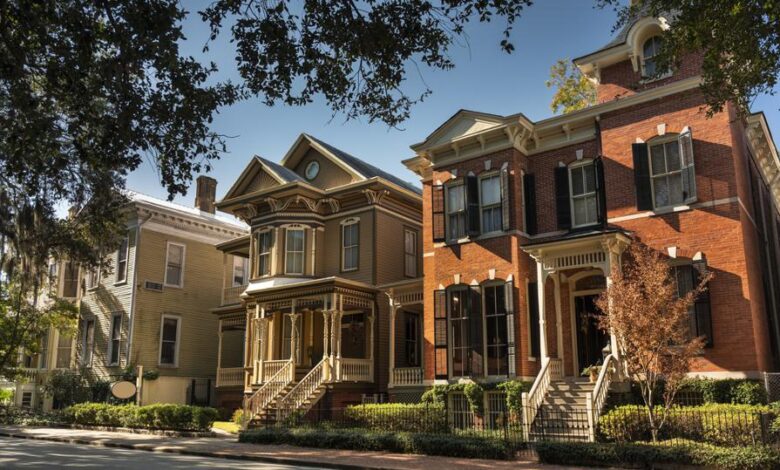March 28, 2025 – Rates Inch Up – Forbes Advisor

Editorial Note: We earn a commission from partner links on Forbes Advisor. Commissions do not affect our editors’ opinions or evaluations.
The current average mortgage rate on a 30-year fixed mortgage is 6.74%, compared to 6.61% a week earlier, according to the Mortgage Research Center.
For borrowers who want a shorter mortgage, the average rate on a 15-year fixed mortgage is 5.79%, up 0.09 percentage point from the previous week.
Homeowners who want to lock in a lower rate by refinancing should compare their existing mortgage rate to today’s refinance rates.
30-Year Mortgage Rates
Today’s average rate on a 30-year, fixed-rate mortgage is 6.74%, which is 0.13 percentage point higher than last week.
The interest plus lender fees, called the annual percentage rate (APR), on a 30-year fixed mortgage is 6.78%. The APR was 6.64% last week.
To get an idea about how much you might pay in interest, consider that the current 30-year, fixed-rate mortgage of 6.74% on a $100,000 loan will cost $648 per month in principal and interest (taxes and fees not included), the Forbes Advisor mortgage calculator shows. The total amount you’ll pay in interest during the loan’s lifespan is $133,328.
15-Year Mortgage Rates
Today’s 15-year mortgage (fixed-rate) is 5.79%, up 0.09 percentage point from the previous week. The same time last week, the 15-year, fixed-rate mortgage was at 5.69%.
The APR on a 15-year fixed is 5.84%. It was 5.75% a week earlier.
A 15-year, fixed-rate mortgage with today’s interest rate of 5.79% will cost $832 per month in principal and interest on a $100,000 mortgage (not including taxes and insurance). In this scenario, borrowers would pay approximately $49,831 in total interest.
Jumbo Mortgage Rates
The current average interest rate on a 30-year, fixed-rate jumbo mortgage (a mortgage above 2025’s conforming loan limit of $806,500 in most areas) is 7.14%— 0.06 percentage point up from last week.
A 30-year jumbo mortgage at today’s fixed interest rate of 7.14% will cost you $675 per month in principal and interest per $100,000. That adds up to roughly $142,903 in total interest over the life of the loan.
How To Calculate Mortgage Payments
To get an estimate of your mortgage costs, using a mortgage calculator can help.
Simply input the following information:
- Home price
- Down payment amount
- Interest rate
- Loan term
- Taxes, insurance and any HOA fees
What’s an APR, and Why Is It Important?
The annual percentage rate, or APR, encompasses the mortgage interest rate and lender fees over the total life of the loan. It’s important because it can give homebuyers a more complete picture of total costs, not just the interest rate.
Comparing APR among lenders is a better way to see overall costs because it will show you everything from interest rate to fees.
How Are Mortgage Rates Determined?
Multiple factors affect the interest rate for a mortgage, including the economy’s overall health, benchmark interest rates and borrower-specific factors.
The Federal Reserve’s rate decisions and inflation can influence rates to move higher or lower. Although the Fed raising rates doesn’t directly cause mortgage rates to rise, an increase to its benchmark interest rate makes it more expensive for banks to lend money to consumers. Conversely, rates tend to decrease during periods of rate cuts and cooling inflation.
Home buyers can make several moves to improve their finances and qualify for competitive rates. One is having a good or excellent credit score, which ranges from 670 to 850. Another is maintaining a debt-to-income (DTI) ratio below 43%, which implies less risk of being unable to afford the monthly mortgage payment.
Further, making a minimum 20% down payment can help you avoid private mortgage insurance (PMI) on conventional home loans. If you can afford the larger monthly payment, 15-year home loans have lower rates than a 30-year term.
What Is the Best Type of Mortgage Loan?
As you compare lenders, consider getting rate quotes for several loan programs. In addition to comparing rates and fees, these programs can have flexible down payment and credit requirements that make qualifying easier.
Conventional mortgages are likely to offer competitive rates when you have a credit score between 670 and 850, although it’s possible to qualify with a minimum score of 620. This home loan type also doesn’t require annual fees when you have at least 20% equity and waive PMI.
Several government-backed programs are better when you want to make little or no down payment:
- FHA loans. Borrowers with a credit score above 580 only need to put 3.5% down and applicants with credit scores ranging from 500 to 579 are only required to make a 10% down payment with FHA loans.
- VA loans. Servicemembers, veterans and qualifying spouses don’t need to make a down payment when the sales price is less than the home’s appraisal value. VA loan credit requirements vary by lender.
- USDA loans. Applicants in eligible rural areas can buy or build a home with no money down using a USDA loan. Moderate-income borrowers can qualify for a 30-year fixed-rate term through the Guaranteed Loan Program. Further, buyers with a very low or low income can receive a 33-year term and payment assistance is available through the agency’s Direct Loans program. Credit requirements differ by lender.
Frequently Asked Questions (FAQs)
What is a good mortgage rate?
A competitive mortgage rate currently ranges from 6% to 8% for a 30-year fixed loan. Several factors impact mortgage rates, including the repayment term, loan type and borrower’s credit score.
How can I get a lower mortgage interest rate?
Comparing lenders and loan programs is an excellent start. Borrowers should also strive for a good or excellent credit score between 670 and 850 and a debt-to-income ratio of 43% or less.
Furthermore, making a minimum down payment of 20% on conventional mortgages can help you automatically waive private mortgage insurance premiums, which increases your borrowing costs. Buying discount points or lender credits can also reduce your interest rate.
How long can you lock in a mortgage rate?
Most rate locks last 30 to 60 days and your lender may not charge a fee for this initial period. However, extending the rate lock period up to 90 or 120 days is possible, depending on your lender, but additional costs may apply.




